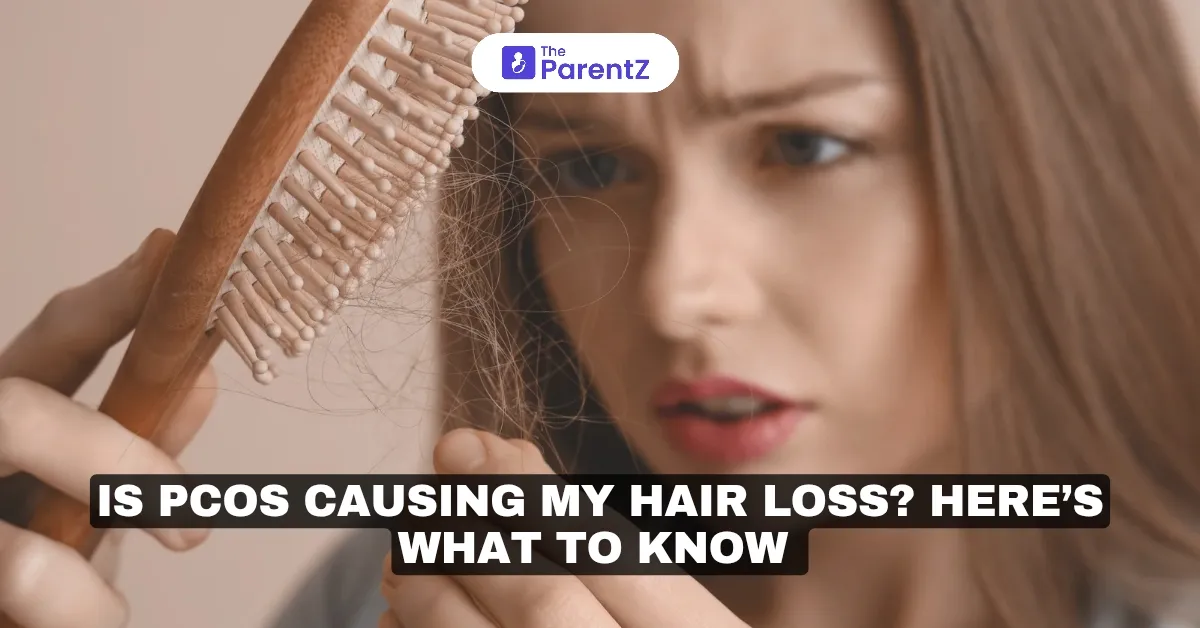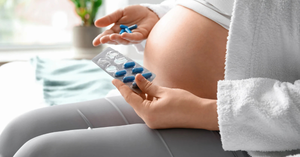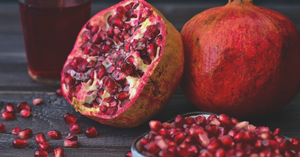Noticed more hair shedding lately? Well, if you have PCOS, this hair loss is not just a random concern—in fact, it could be one of the most overwhelming symptoms of the condition.
Polycystic ovary syndrome (PCOS) affects nearly 13 percent of women of reproductive age. While it is primarily known for causing irregular periods, weight gain, and acne, hair loss is another common symptom.
So why does PCOS trigger hair loss? And what can you do about it? Read this article to find out the link between hair loss and PCOS in women and what you should know.
How Does PCOS Cause Hair Loss?
Hair loss in PCOS is primarily caused by hormonal imbalances, especially high levels of androgens, a male hormone.
The lesser-known fact is that women naturally produce small amounts of androgens. However, in PCOS, androgen levels are much higher than normal, which leads to symptoms such as thinning hair, acne, and excess facial or body hair.
These male hormones further affect hair follicles on your scalp, eventually leading to low production of healthy hair. Over time, this results in gradual hair thinning, especially around the crown and part line. This is similar to male-pattern baldness.
Signs to Recognize PCOS-Related Hair Loss
Unlike sudden hair loss, PCOS hair loss is gradual. Here are some signs that might indicate PCOS-linked hair loss in women:
- A widening part line
- Thinner ponytails
- Hair becoming brittle and weak
- More scalp visibility, especially at the top of your head
Tips to Reverse Hair Loss from PCOS
Treating the root cause is essential when it comes to managing hair loss from PCOS. Here are some tips to manage it.
Balance Your Hormones with Diet
Your diet plays a significant role in managing PCOS. Since insulin resistance is common in PCOS, by stabilizing blood sugar levels, you can actually help regulate hormone levels. The best approach is to include high-protein foods, food rich in healthy fats such as avocados, nuts, olive oil, and fiber-rich foods, including leafy greens, lentils, and whole grains.
However, make sure to avoid processed carbs, sugary foods, and dairy, as they can increase and further worsen hair loss.
Consider Medications
If hair loss is severe, your doctor may suggest birth control pills to regulate hormone levels, medications for reducing androgen levels, or maybe Minoxidil for stimulating hair growth. However, make sure to consult your doctor before considering any medication.
Use Hair-Friendly Supplements
Some key vitamins and minerals also support hair growth, such as biotin for strengthening hair strands, zinc for regulating hormones, and iron for managing low levels associated with hair loss. Besides, Vitamin D deficiency, a common part of PCOS, may also affect hair health.
Try Natural Remedies
Many women may also find success with natural hair treatments, such as Rosemary oil for boosting circulation to hair follicles, pumpkin seed oil that may block androgens, and scalp massages to encourage blood flow for a healthier scalp.
Manage Stress Levels
Stress can significantly worsen hormonal imbalances. Therefore, to manage hair loss if you have PCOS, the most important thing you need to target is handling stress.
The best approach is to indulge in Yoga or meditation, regular exercise, and proper sleep when it comes to managing stress levels.
Conclusion
If you’re struggling with hair loss from PCOS, know that around 40-70 percent of women with PCOS experience some form of hair thinning. However, by balancing hormones, eating right, and considering both medical and natural treatments, hair regrowth is possible.









Be the first one to comment on this story.